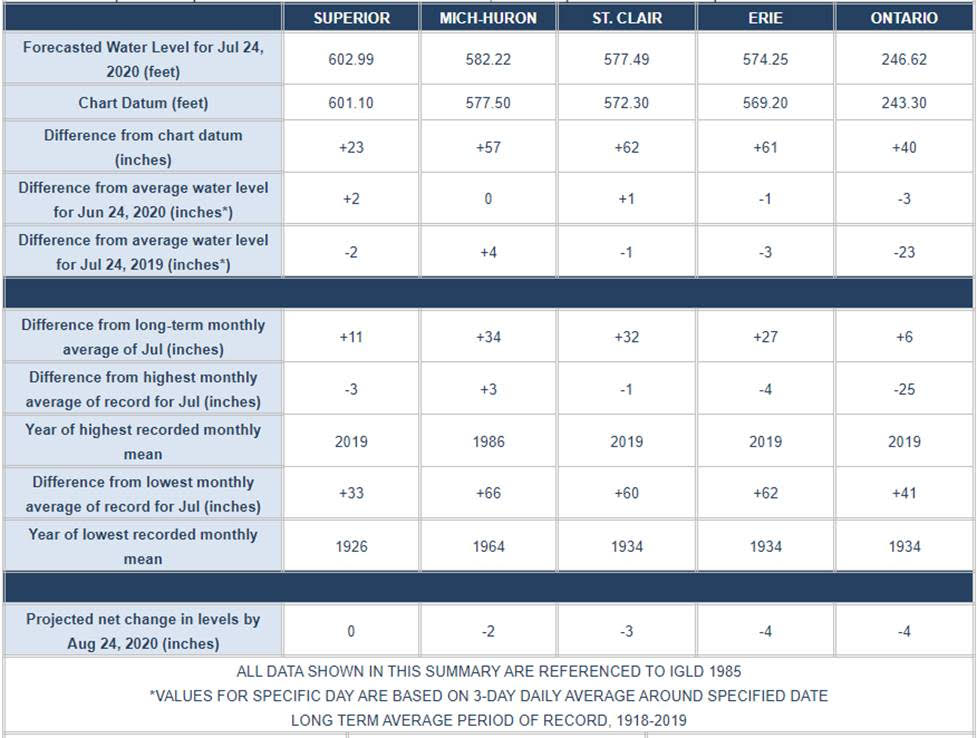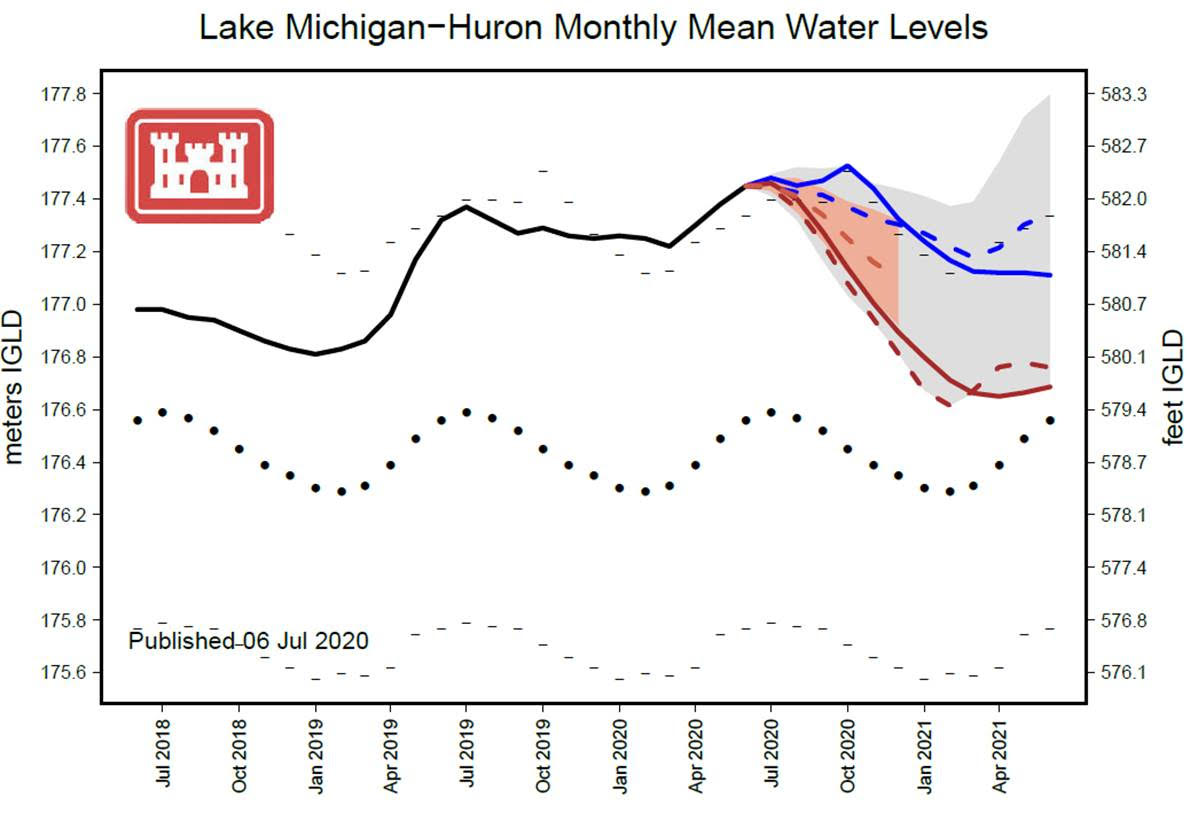2020-Jul-27
July 26 Water Levels Report
Over the last week the Great Lakes region received substantial precipitation. Most of the basin received between 0.25 to 2.0 inches; however, large portions of the basin received from 2.0 to 6.0 inches. Temperatures throughout the region remained above average for most of the past week. Water levels continue to be well above average and near or above record high levels.
From a month ago the water level on Lakes Superior & St Clair are up 2 & 1 inches respectively, Michigan-Huron is unchanged, and Lakes Erie & Ontario are down 1 & 3 inches, respectively. Lakes Superior, St. Clair, Ontario, & Erie are lower by 2, 1, 3 & 23 inches, respectively, and Lake Michigan-Huron is 4 inches higher than it was at this time last year. Lakes Superior, Michigan-Huron, St Clair, Erie & Ontario are 11, 34, 32, 27 & 6 inches, respectively, above their long term July average. Lake Michigan-Huron is 3 inches higher than its previous record high for July. All the other lakes are either at or below their July record high.
In a month’s time, the level of Lake Superior is expected to be unchanged, and Lakes Michigan-Huron, St Clair, Erie & Ontario are expected to be down 2, 3, 4 & 4 inches respectively. Outflows from Lake Superior into the St. Mary’s River and Lake Michigan-Huron’s outflow into the St. Clair River are predicted to be above average for this month. Lake St. Clair’s outflow through the Detroit River and Lake Erie’s outflow through the Niagara River are also forecasted to be above average in this month. In addition, Lake Ontario’s outflow through the St. Lawrence River is projected to be above average for this month.
High water levels and potentially record high water levels are expected to persist for at least the next six months, so flood prone areas are expected to remain vulnerable.



With regard to the forecast graph below, and the more recently updated first graph in this report, the USACE is predicting that the most likely outcome is that levels will not go up any further this year, remain much the same as they are now (about 3-4 inches higher than last year) through August, and then start to decline in September.


Please note that the purple and blue lines, and dotted lines, in the USACE forecast graph show what happened with water level changes from month to month in each of the years 1986-87, 1977-78, 1930-31 and 1976-77 – they do not represent actual water levels in those years.
